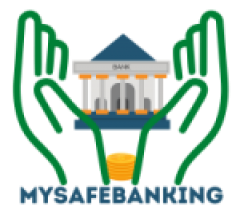
With technological advancement and exponential adoption of Digital banking services after COVID-19 crisis, more people are getting prone to digital financial frauds by hackers, spammers and persons with malaise intentions.
These facilities are developed and offered for the convenience of the users so that they can transact seamlessly while sitting at their home or offices but fraudsters take advantage of less informed consumers and steal their hard-earned money.
Lot of senior citizen consumers fall prey to these fraudsters as they are digitally unschooled. This blog is written to provide 5 Brilliant ways by which you can avoid the internet banking fraud and save yourselves from a well planned theft.
Avoid Internet Banking fraud with 5 easy tips:
1. Always use Personal Computer/Laptop
Whenever you are accessing your bank account digitally, please remember to open the internet banking website on your personal machine (Desktop or Laptop).
On public computer, there is a possibility that
- Your personal information might get saved in the form of Cache or
- Some hacking software (Malware) is pre-installed to steal your personal information, which you might not be aware of.
So, in order to avoid such possibilities of fraud, always use your own machine (Desktop/Laptop) for safety of your hard-earned money.
2. Ensure that you are using “HTTPS” version of the website
HTTPS stands for ‘Hypertext Transfer Protocol Secure’ which means that the communication between your computer and Bank’s server is encrypted and secured. It further enhances the security of data transfer or dialogue exchange between the two parties.
By using HTTPS version the user can exchange credit and debit card numbers, banking information and login credentials securely over the internet.

Below mentioned is the example of a non-secured website wherein if you share any of your personal information like bank details, mobile number, email ID, credit or debit card details etc. are not safe because here the user is communicating with the server in an open environment wherein any third person can come in and steal the information or data.

Hence, whenever you are accessing any website wherein you have to provide your personal details then always ensure to use the HTTPS version.
3. Never share your credentials with anybody

Sharing is always beautiful but not when it comes to your financial information. Sharing your credentials with someone is like handing over the Key of your House to someone. If any un-authorized transaction occurs because of sharing of the credentials then you are the only one responsible for that financial loss.
And, if you find that your credentials are compromised then you should immediately change them on your personal laptop or desktop so that no harm can be done to your savings.
4. Don’t be predictive while creating the Login Password
Password is the most important element of your cyber security and if it gets compromised then everything becomes vulnerable. While creating your password remember the following points:
- Don’t use your name or address or any other personal information related to you, which can easily be guessed by anyone.
- Always follow the guidelines shared by the website for creating strong passwords. some of them are:
- Password should be of at least 8 characters.
- Use mix of alphabets, numbers and special characters (#, $, %, ^ etc.).
- At least one alphabet should be in Upper Case.
- Use combination of various numbers instead of repeating the numbers.
- Longer the password, better it is.
- Some of the examples of strong passwords are:
- @lphA1#
- PassWord#982
- PASSWord%20% etc.
- Keep changing your password regularly, at least once in 3 months. While changing the password, do not repeat the previously used passwords. You can take the help of password generators as well for generating strong passwords for your profile.
Follow the password guidelines and methods judiciously as they are very important for your cyber security. Also, do not write the password on something which could be accessible by others. Many users in the past have got victimized because they have written the password in some notebook or diary and from there it got stolen.
5. Beware of shoulder surfing while creating the password or accessing your account.
Shoulder surfing as the name says is the practice of stealing your important information knowingly or unknowingly by a person which you are accessing your confidential information. For example, while using mobile phones in public transport the adjacent neighbor tries to look through your personal information, sideways or from above your head.
As a good practice, either don’t access the confidential information at public places (buses, railways or restaurants) or be vigilant and keep looking around so that someone is not stealing away your privacy.
There is nothing to worry about when your using the Digital services as they are meant for convenience only but there are some rules which you have to follow to keep yourself safe from the vulnerabilities of the digital world.
If you follow the above mentioned 5 tips while executing the banking transactions then you will never fall prey to the fraudsters and you can keep your hard-earned money safe.
If you have find this information relevant, then do share with your friends and family for their safety and do ‘Subscribe’ for more interesting topics.
https://anchor.fm/mysafebanking/episodes/5-Brilliant-ways-to-avoid-Internet-Banking-fraud-e18r78f
Thank u Mr.Deepak for sharing.
This topic is related to evryone and very helpful,easy to understand.
Keep sharing such kind of topics which help us.
Be safe stay safe n safe banking
This is an interesting blog which I have came across after going through various articles on the web. The author has presented the facts and explained the safety measures in very simple language. I have even shared the link to all my friends and colleagues so that they can also get financially aware. Thanks for sharing such valuable information.